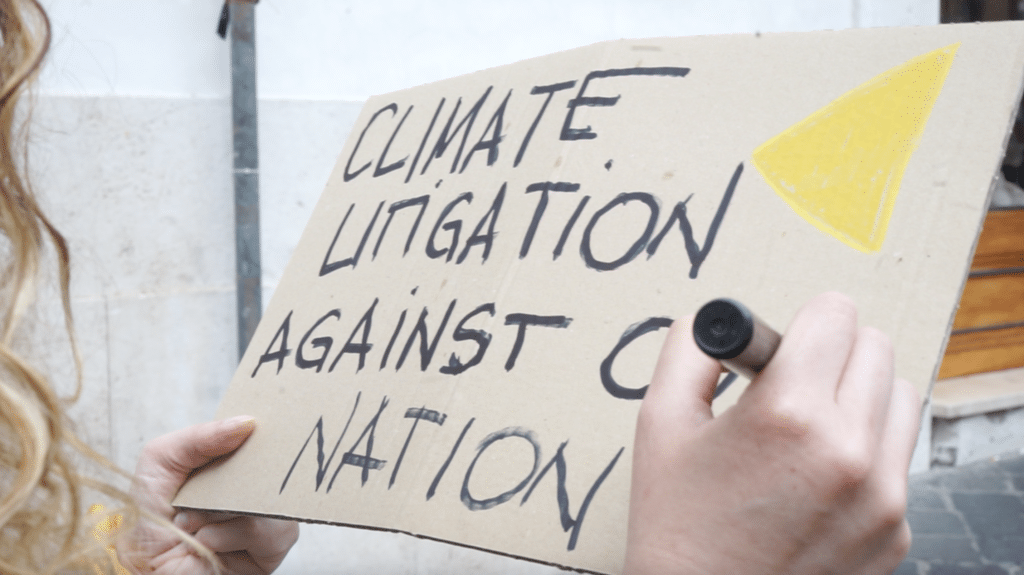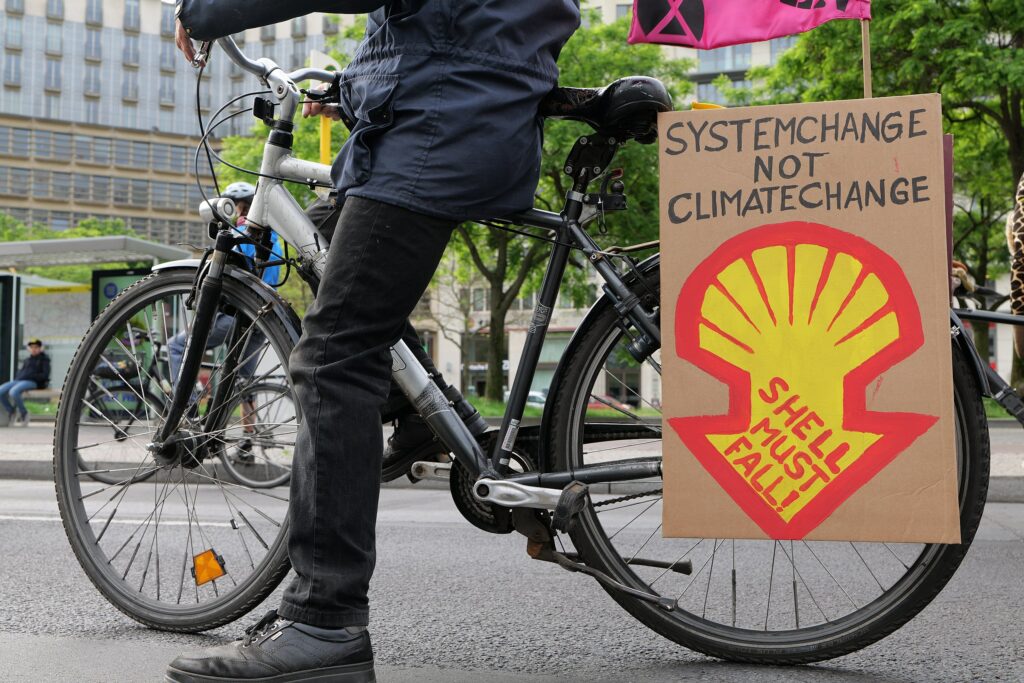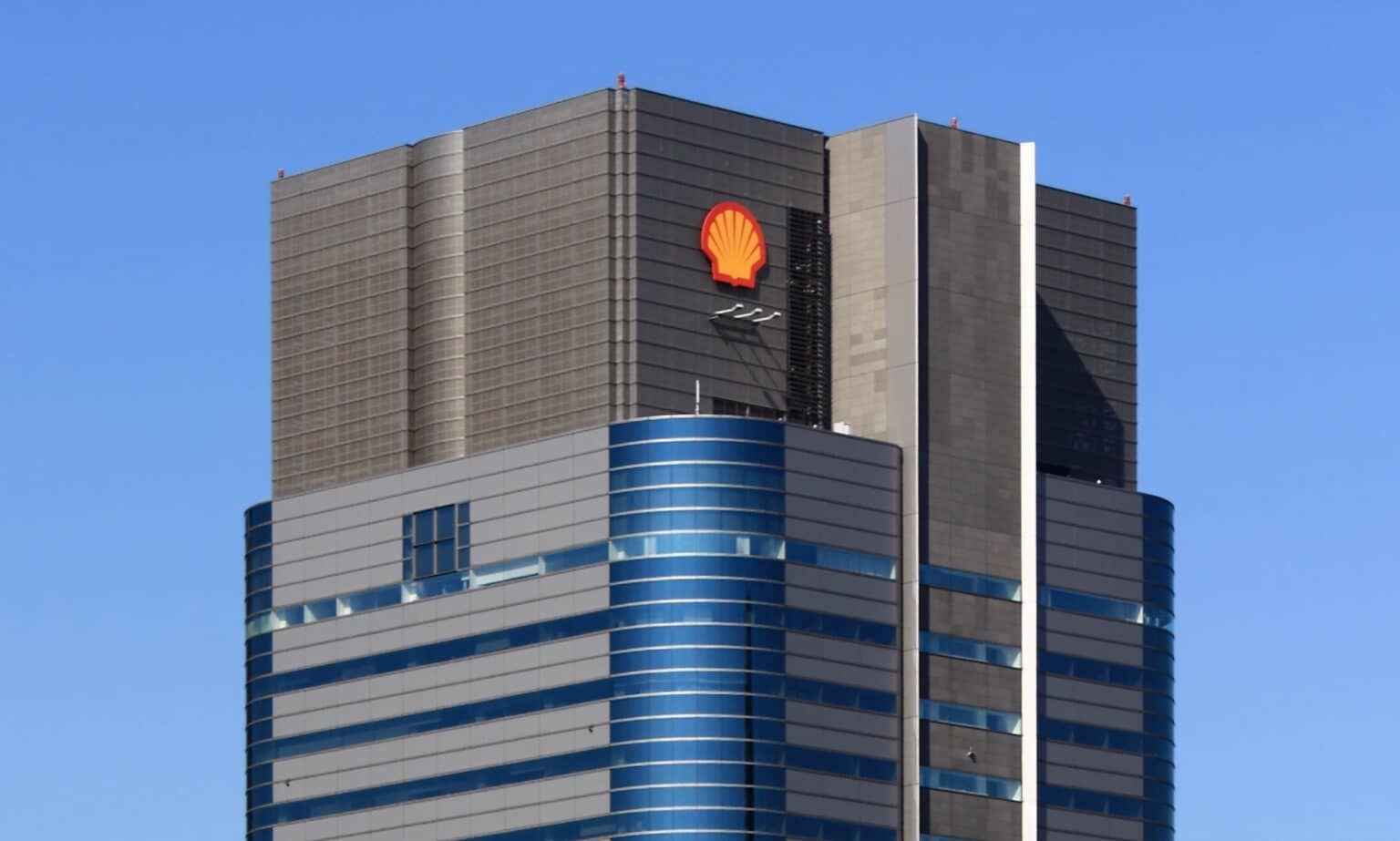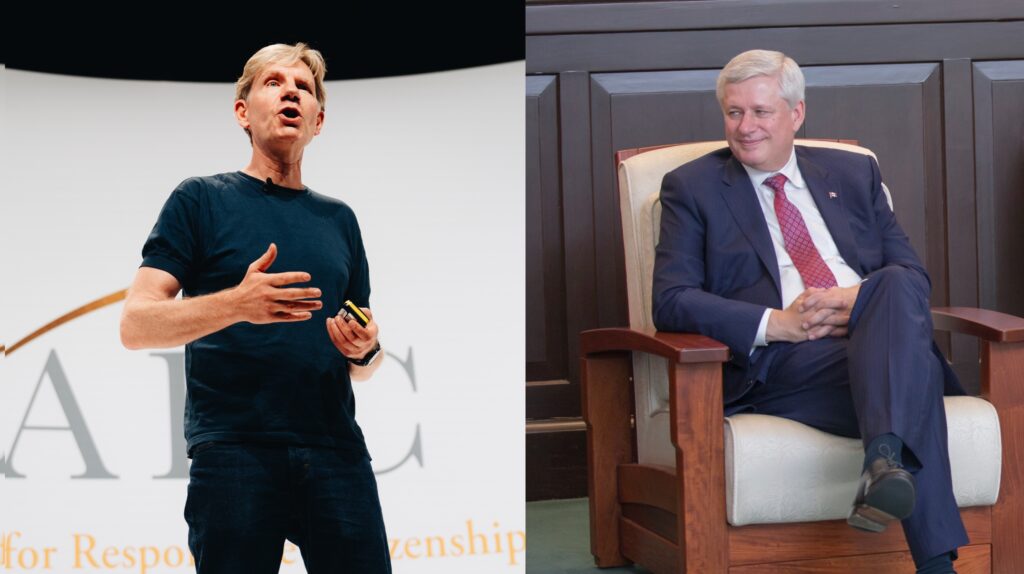Boards should prepare for legal action based on their response to climate change, a DeSmog investigation has found.
Lawyers, insurers, and campaigners have been anticipating litigation against company directors for some time and say the chances are only growing as corporate requirements to address climate risks get tougher.
Today, March 15, ClientEarth announced it was taking legal action against energy giant Shell’s board of directors, arguing that their failure to properly prepare the company for net zero carbon emissions breaches their legal duties.
The environmental law non-governmental organization, which has bought shares in Shell, claims the company’s 13 executive and non-executive directors failed to adopt and implement a climate strategy that truly aligns with the Paris Agreement and says this is a breach of their legal duties under the UK Companies Act. It is the first case seeking to hold company directors personally liable for failing to properly prepare for the energy transition.
We've started legal action against Shell’s Board, seeking to hold it liable for mismanaging the climate risk facing the company. Find out how this ground-breaking case works:. https://t.co/BcTRESMweX
— ClientEarth (@ClientEarth) March 15, 2022
A Shell spokesperson told DeSmog: “To be a net-zero emissions business by 2050, we are delivering on our global strategy that supports the Paris agreement. This includes the industry-leading target we have set to halve emissions from our global operations by 2030, and transforming our business to provide more low-carbon energy for customers.
“Addressing a challenge as big as climate change requires action from all quarters. The energy supply challenges we are seeing underscore the need for effective, government-led, policies to address critical needs such as energy security while decarbonising our energy system. These challenges cannot be solved by litigation.”
ClientEarth has been hinting at such action for several years, since successfully suing Polish energy company Enea on the grounds that its plans for a huge coal power plant posed an “indefensible” financial risk to investors.
The number of lawsuits seeking to take action on the climate crisis has grown exponentially over the past few years. Following a slew of successful cases against governments, campaigners have begun targeting the private sector from a variety of angles including challenges to how well their commitments chime with national and international climate targets, greenwashing, and breaches of corporate law. That action is expected to continue to accelerate.
Louise Fournier, legal counsel for Greenpeace International, describes litigation against individuals as the next “logical stepping stone”. “Communities impacted by the climate emergency and shareholders will increasingly sue directors, officers, and board members of large polluting companies,” she says.
While Fournier sees directors of fossil fuel firms as first in line for this kind of shareholder action, she says any company is at risk, “especially if they claim that they have a specific climate-related strategy… but are not acting in line with what the science requires”.
Ellie Mulholland, a lawyer and director of the Commonwealth Climate and Law Initiative (CCLI) who has researched this topic in depth, says there is a “real threat” of further claims like this one against Shell that challenge whether boards have met their fiduciary duties.
These duties — particularly the duties of care and loyalty — make directors responsible for identifying, managing, mitigating, and disclosing any foreseeable and material risks to their company. Shareholders and investors could sue directors under these duties on the basis that the company does not have proper processes in place to account for climate risks, says Mulholland. Or, if they have lost money, they could claim that the processes that were in place were not fit for purpose or not acted on properly.
An Era of Climate Liability
Climate change poses precisely such “foreseeable and material” risks, says Fournier. The International Panel on Climate Change’s (IPCC) latest scientific report in February warned that international trade could be disrupted by flooding, droughts, and energy outages — all of which are likely to increase — and the price of key goods such as food could skyrocket. The results are likely to affect the supply chains of every business, whether directly or indirectly.
The potential losses are also huge. One 2019 study showed that the United States alone could lose $520 billion across 22 sectors due to global temperature rise. And when you have losses, says Mulholland, “people want to recoup them”.

In addition to ClientEarth, a number of other organisations that have already been active in taking public authorities and companies to court over climate told DeSmog they were thinking seriously about bringing claims against individuals.
While the first crop of claims are being wielded as a strategic tool by environmental groups, experts anticipate future claims will come from regular investors. Last year, the hedge fund Engine No. 1 managed to win three board seats at ExxonMobil Corp, having blamed the company’s poor recent financial performance on its failure to transition to a “decarbonising world”.
ClientEarth’s case against Enea was aimed at showing “financially motivated shareholders that this is a power that they could exercise”, says Mulholland of CCLI.
Although ClientEarth’s new suit is filed in the UK, Australia and the United States are seen as particularly fertile places for litigation against individuals.
A report by the CCLI and University of Oxford found Australian directors “face the greatest potential for liability in relation to the impacts of climate change on their business” because of the country’s strong corporate law and because a significant proportion of the Australian economy operates in high-risk sectors.
Meanwhile, in the famously litigious United States, ExxonMobil officials are already having to fend off climate change lawsuits. One, brought by ExxonMobil shareholder Pedro Ramirez Jr., alleges its executives failed to properly account for climate impact to its business and made public statements and financial disclosures that caused its share price to fall.
Fournier says that while early shareholder litigation focused on failure to disclose, “with this new lawsuit and the Shell victory last year, we can expect more lawsuits focusing on the inadequacies of the emissions reduction strategies to reach net zero emissions.”

She adds that directors are also opening themselves up to greenwashing accusations “unless their company’s net zero strategy is fully integrated in its operational strategy and has specific types of emissions reductions and a clear timeframe, including short-term targets”.
Mulholland says people are particularly likely to target their lawsuits at directors if a company loses all its money. The lawsuits brought by wildfire victims against the former executives of California-based energy firm PG&E, which was going through bankruptcy at the time, are a case in point. A trial is scheduled for this summer.
While such cases may be difficult to bring, Professor Cynthia Williams, Osler Chair in Business Law at York University in Canada, wrote in a recent paper that “officers and directors may face potential fiduciary liability if they utterly fail to consider climate change as part of their decisionmaking and/or oversight”.
Some lawsuits might use human rights arguments. The success of a landmark case against Shell in the Netherlands last year “really opens the door” for those cases, says Fournier, “because of its recognition that corporations have to respect the UN Guiding Principles on Business and Human Rights and therefore company directors have an obligation … to ensure that their corporations are meeting these human rights principles”.
Other legal tools that could be used to bring individuals to account over climate, say experts, are “books and records” requests which look at what precise information was shared with the board.
Environmental campaigners have also started using the law to argue that company directors are abusing their power. In France, the CEO of energy firm Total faces a complaint filed by Greenpeace and other civil society groups alleging he used his role on a university board to push the company’s fossil fuel agenda.
Chances of Success?
While there is general consensus that more lawsuits explicitly citing climate arguments will be brought against individuals in the near future, the question of whether they will be successful remains open.
Many legal jurisdictions give directors a large degree of discretion in making corporate decisions; in the United States, for example, this is known as the “business judgment rule”.
But Mulholland notes that this rule is restricted to breaches of duty of care, and says that even in Delaware — where most large U.S. companies are headquartered — directors have been successfully sued for breaches of loyalty, which includes the oversight that would be relevant to failures of climate risk governance. “Business judgment is not the shield many seem to think,” she concludes.
Litigants might not even have to prove they have already lost money. In Australia, 23-year-old Mark McVeigh filed a case against Rest, the trustee of his superfund (essentially a pension fund), claiming it violated the Corporations Act 2001 by failing to provide information related to climate change business risks and any plans to address those risks. McVeigh said that would affect the pension payouts he gets when he retires.
In November 2020, just before the trial was due to start, the parties agreed to settle the case, with Rest publicly stating that climate change was a “material, direct and current financial risk to the superannuation fund” and that, as a superannuation trustee, it “considers that it is important to actively identify and manage these issues”.

Companies themselves are increasingly concerned about the risk of litigation against their boards. A 2019 report by U.S. asset management firm Mercer concluded that, “as awareness of the financial materiality of climate-related factors has increased, financial regulators in a number of jurisdictions have indicated that many investors will need to consider and manage climate-related risks in order to comply with their existing fiduciary duties”.
Angus Duncan, executive director of financial, executive, and professional risks for directors and officers at Willis Towers Watson, says that, as well as shareholder lawsuits, there is a growing appetite from company regulators to take action against company boards in general. “They are doing this because they think targeting individuals is a more effective way of making change in the direction they want, than targeting the corporate level.”
Last year, the Climate Financial Risk Forum, an industry forum chaired by the UK’s Financial Conduct Authority (FCA) and Prudential Regulation Authority (PRA), looked closely at the issue. It found a variety of ways in which directors could be personally liable in relation to climate risk, up to and including criminal sanctions relating to the preparation of corporate reports and accounts under the UK’s Companies Act and, in the case of companies with publicly traded securities, under the FCA’s rules. It noted that this was very rare in the UK, although “it can be more common in some other markets (e.g. Germany and the US).”
Neither the FCA nor the PRA would not comment on whether they were prepared to take action against individual directors. But in a 2020 letter to CEOs, the PRA said companies should be discussing climate management more consistently and actively at the board level, and it is currently undertaking a “climate biennial exploratory stress test”, which is expected to explore the risks of litigation to the UK’s largest banks and insurers.
In the United States, the acting chair of the Securities and Exchange Commission (SEC) Allison Herren Lee gave a keynote speech last year at the Society for Corporate Governance’s national conference, in which she warned that the duties of loyalty and care required company directors to be aware of climate risks to their companies and to respond to any “red flags”.
New Rules on the Rise
Meanwhile, the requirements on companies to be transparent about their climate risks and to manage them well are expanding around the world.
The UK’s FCA brought in two new rules in 2020 and 2021, requiring all listed companies to say if they’ve made disclosures consistent with the Task Force on Climate-Related Financial Disclosures. And from this April, large companies will be subject to mandatory climate-related financial reporting.
The SEC is also about to issue a proposed new rule on climate risk disclosures by public companies, which would require publicly traded companies to release information to investors about their emissions and how they are managing risks related to climate change and future climate regulations.
“We have seen huge amounts of new legislation bringing in new obligations on directors in connection with reporting on climate change,” says Duncan, “and that’s only going to increase.”
He says disclosure obligations are one of the main ways that listed companies end up being sued, whether by their investors or by not-for-profit organisations. “Once everybody’s having to make these kinds of statements, that leaves it open for third parties and their shareholders to bring claims saying that isn’t achievable or you’re greenwashing.”
Whether companies are prepared for these risks is unclear. In a report detailing how U.S. corporate boards suffer from inadequate expertise in financially material Environmental, Social, and Governance (ESG) matters, Tensie Whelan, clinical professor of business and society at the NYU Stern Center for Sustainable Business, said directors do not have to be climate change scientists but should have “a strategic understanding of the issues” so that they know what questions to ask.
For Mulholland, the biggest benefit of litigation is as a threat; what she really wants is companies to respond to the risk of a lawsuit by weaning themselves and their supply chains off fossil fuels and other climate-harming activities.
“I think we can robustly say this is where the law is today. Companies are already required to integrate climate considerations into governance and disclosure, and individuals might be held liable for not making sure this is happening. So if there is this real risk, then decisions should be made differently today.”
Subscribe to our newsletter
Stay up to date with DeSmog news and alerts







